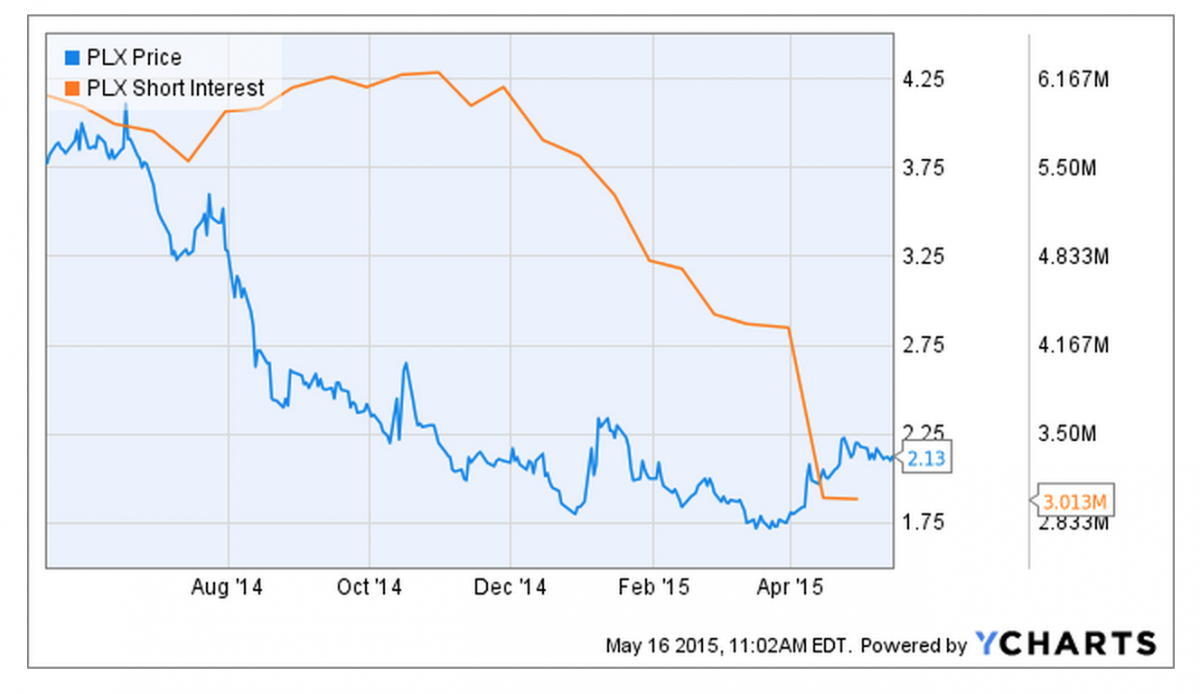Reminder: Pharmboy is available to chat with Members, comments are found below each post.
Here's an update on a stock that Pharmboy is well familiar with, PLX. Pharmboy provided his thoughts for this article which was published by Lowenthal Capital Partners, and which I contributed to them. One reader asked the question: While PLX has sufficient cash for another year's operation, it needs to conserve resources and will likely need to raise money in the future. Would you care to venture a guess as to when you believe they will raise money (and what type vehicle they will use)?
Pharmboy's response: They will sell stock, and my guess is in 4Q15. I agree–selling stock is probably on the horizon sooner rather than later. Let's hope they get the stock moving higher before then. ~ Ilene

Can Protalix BioTherapeutics Deliver?
Protalix BioTherapeutics is a small biotech company that is working on developing clinically superior versions of recombinant therapeutic proteins for the treatment of genetic disorders, such as Gaucher's disease (GD) and Fabry disease (FD). It is based in Israel and was founded in 1993.
PLX is using its plant cell-based system, ProCellEx, to produce recombinant proteins with competitive advantages over existing recombinant protein therapies for indications that are known to be amenable to therapeutic protein replacement. The ProCellEx system is more robust and less expense than mammalian cell and yeast cell-based processes. Further, the ProCellEx system may produce biotherapeutics that can be delivered orally.
Currently, PLX has one recombinant therapeutic protein product on the market called taliglucerase alfa. Taliglucerase alfa is used for enzyme replacement therapy in Type 1 GD. It is being marketed with Pfizer (NYSE:PFE) under the brand name Elelyso.
PLX also has four potential recombinant protein drugs in early stages of development. PLX's active investigational programs address Gaucher's disease, Fabry disease, immune and inflammatory diseases such as inflammatory bowel disease, and cystic fibrosis.
While PLX has sufficient cash for another year's operation, it needs to conserve resources and will likely need to raise money in the future.
Given the comparative cost effectiveness and ease of use of ProCellEx in generating large quantities of therapeutic proteins, with the potential for effective oral delivery, I believe PLX is an interesting biotech speculation. Unlike many publicly traded biotechs today, the company's full potential does not seem to be priced into the shares.
Read the rest here.
The chart above would have anyone wondering — will this company live up to its potential?



